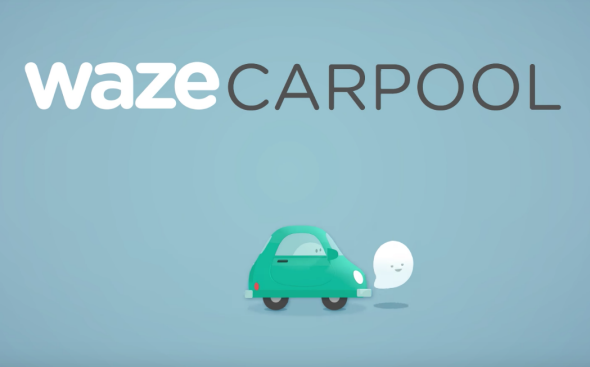Things used to be so simple in Silcon Valley: Uber ran a taxi service. Google owned maps and built driverless cars.
Over the past month, Uber has acquired a driverless truck startup run by ex-Googlers, purchased and deployed a fleet of self-driving Volvos in Pittsburgh, and announced a $500 million investment in maps.
Tuesday, the Wall Street Journal reports that Google will expand a carpool pilot to all Bay Area users of Waze, the Israeli navigation app that Google purchased in 2013. It’s a move that cements Google’s ambitions to compete on Uber’s turf. Also, the days of Alphabet and Uber sharing a board member are over, the Journal reports.
Waze Carpool is modeled after a similar program that Google rolled out in Israel in the summer of 2015. That app, RideWith, is also aimed at commuters with Waze accounts, though Alphabet takes a 15 percent cut of the fee that riders pay to drivers.
The Waze Carpool pilot has been underway around San Francisco since this spring but limited to 25,000 employees of Bay Area employers like Walmart and Adobe. It’s truly a ride-sharing program, in the sense that there are no professional drivers—as a driver, you’re limited to two rides per day. “Waze Carpool focuses on covering costs, not generating income,” the company writes. “It is not designed to allow a driver to make a profit or earn a salary.”
As a result, it’s a considerably cheaper option for riders than Uber, Lyft, or traditional cab companies. It could be cheaper than public transit.
The question is whether it will be worthwhile for drivers. Why should you give someone a ride? Waze’s answer is basically: Why not? It’s the Couchsurfing to Uber’s Airbnb: the more holistic, less pecuniary route to sharing your private property.
The program is bound to put Alphabet in complicated legal territory. The company will rely on user ratings to vet drivers, forgoing any system of background checks. (Uber and Lyft have pushed for state laws to pre-empt local background checks and left cities over fingerprint requirements.) The program will also put thousands of drivers in the awkward position of making a very small amount of income from a secondary job. Will that entail filing a separate set of tax returns, submitting estimated taxes, and undertaking the other frustrating paperwork of the self-employed? “Drivers are responsible for determining if the Reimbursement is taxable, and for remitting taxes to the appropriate tax authority,” the terms say. Is it worth it?
In short, the program will test the value of a solitary commute. The algorithm may be so good that it will take barely two minutes out of your day to pick up and drop off a carpooler. But is daily gas money, in this land of very cheap gas, enough compensation for spending 30 minutes listening to another human being slurp hot coffee in your passenger seat?
